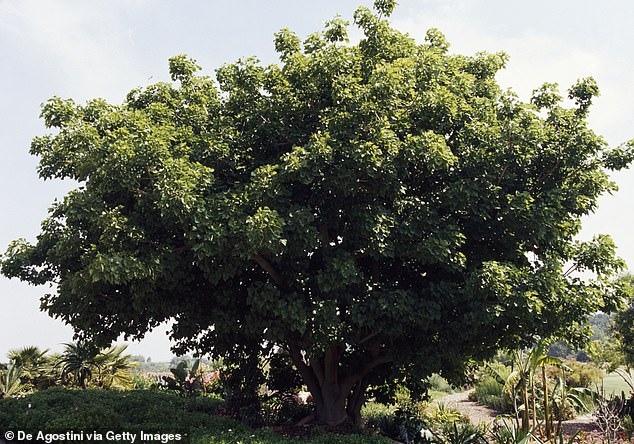- More than 200 plants, fungi and algae will be renamed
- This is because they contain the word ‘caffra’, derived from the term ‘kaffir’.
- Kaffir is considered an ethnic slur used to denigrate black people in South Africa.
Botanists have decided to rename hundreds of species, including common plants, because they have “racist” or offensive connotations.
They say the names of more than 200 plants, fungi and algae should be changed because they contain the word “caffra”, derived from the term “kaffir”.
Kaffir is considered an ethnic slur that has been used to denigrate black people in South Africa.
Yesterday, at the International Botanical Congress held in Madrid, changes to plant names were voted on.
Later this month, plants such as the coastal coral tree will be formally renamed Erythrina affra, rather than Erythrina caffra.
Later this month, plants such as the coastal coral tree will be formally renamed Erythrina affra, rather than Erythrina caffra, because “caffra” is derived from the term “kaffir”, which is a derogatory term used against black people in South Africa.

Botanists have also changed the name of the gifbossie flower from Gnidia caffra to Gnidia affra.
In another example, the flower gifbossie will be renamed Gnidia caffra to Gnidia affra.
Gideon Smith, a plant taxonomist at Nelson Mandela University, proposed the changes with a colleague, Professor Estrela Figueiredo.
Professor Smith said: “Throughout the process we had faith in the global majority support of our colleagues, even though the outcome of the vote was always going to be tight.”
Their proposal takes the species names based on the word caffra and its derivatives and replaces them with derivatives of ‘afr’.
The measure was approved by secret ballot, with 351 votes in favor and 205 against.
Alina Freire-Fierro, a botanist at the Technical University of Cotopaxi in Ecuador, said it was good that the ‘caffra’ amendment was passed because of the offense it causes.
But its approval could open the door to other similar changes.
He added: “This could potentially cause a lot of confusion and problems for users in many fields other than botany.

Gideon Smith, a plant taxonomist at Nelson Mandela University (pictured), proposed the changes along with a colleague, Professor Estrela Figueiredo.
The International Botanical Congress also approved a second change to plant-naming rules that aimed to address problematic names, such as those recognizing people who profited from the transatlantic slave trade.
Under the change, a new committee will be created to consider controversial names, but it will only consider objections to new scientific names for plants that were published after January 1, 2026.

